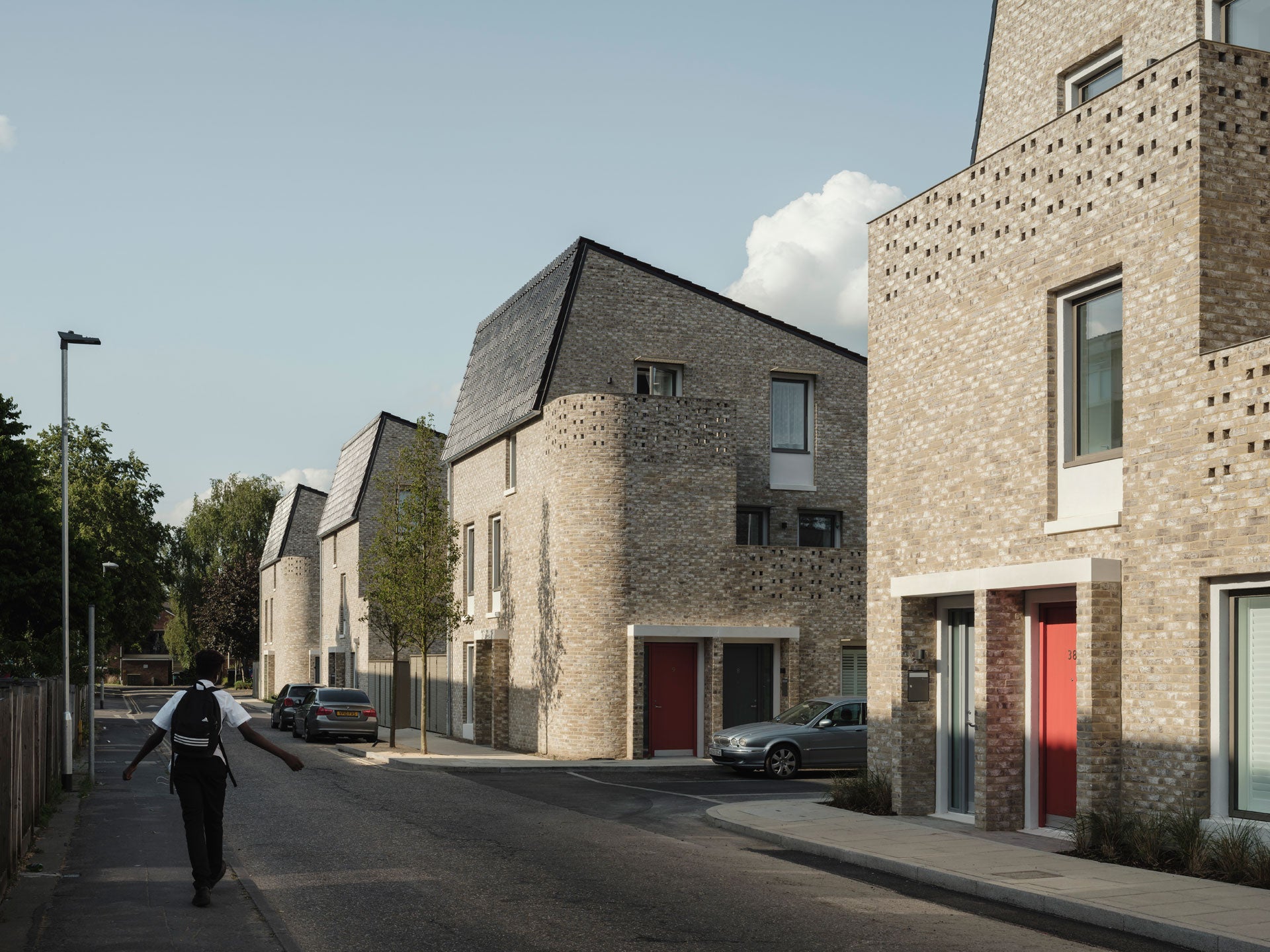
The announcement that the RIBA 2019 Stirling Prize has been won by PassivHaus-standard council housing development Goldsmith Street is a sign that low-energy design is not only possible, but entirely affordable if the industry re-frames its thinking, according to experts.
Designed by Mikhail Riches with Cathy Hawley, Goldsmith Street is a social housing development in Norwich, UK, that includes 105 homes, which are a mixture of two-storey houses and flats with their own front door and private balconies.
One of only a very small number of new council housing developments built in the UK in the last few decades, the scheme is the first social housing development to be awarded the Stirling Prize, which recognises the best new building in the country, in the award’s history.
Its following of stringent PassivHaus standards, which focus on dramatically reducing a building’s energy needs through careful design, plus the use of solar panels, mean that each home will have 70% lower energy bills than the average UK residence.
“Goldsmith Street is a modest masterpiece. It is high-quality architecture in its purest, most environmentally and socially conscious form,” said Julia Barfield, chair of the RIBA 2019 Stirling Prize judging panel.
“Behind restrained creamy façades are impeccably-detailed, highly sustainable homes – an incredible achievement for a development of this scale.”
How well do you really know your competitors?
Access the most comprehensive Company Profiles on the market, powered by GlobalData. Save hours of research. Gain competitive edge.

Thank you!
Your download email will arrive shortly
Not ready to buy yet? Download a free sample
We are confident about the unique quality of our Company Profiles. However, we want you to make the most beneficial decision for your business, so we offer a free sample that you can download by submitting the below form
By GlobalDataStirling Prize winner Goldsmith Street changes social housing perceptions
The high praise Goldsmith Street has attracted, galvanised by it netting the Sterling Prize, has upended perceptions that social housing inherently needs to be low-quality to meet budget requirements – and that it therefore cannot prioritise sustainable principles.
“Goldsmith Street shows what’s possible – and I hope the industry is taking note,” said Steven Charlton, managing director of the London studio of Perkins and Will.
“Its PassivHaus certification is a clarion call to the entire built environment that sustainable, low energy design is financially viable if we, as an industry, take a long-term operational view of the buildings we design and deliver.”
The project highlights how UK social housing – which is in desperately short supply – can be developed, and has led the RIBA to call for other projects to follow suit, particularly in light of growing environmental concerns.
“This is proper social housing, over ten years in the making, delivered by an ambitious and thoughtful council,” said Barfield.
“These desirable, spacious, low-energy properties should be the norm for all council housing.”
Read more: Post-Brexit housing: Build more and make homes affordable again in the UK







